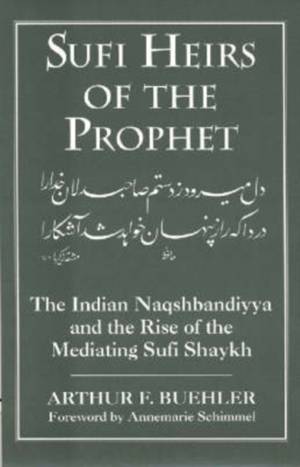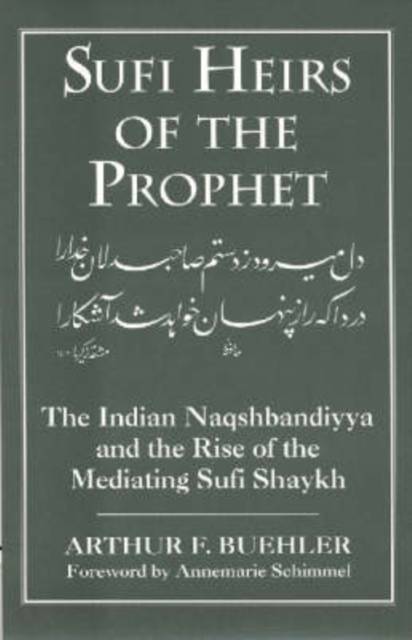
- Afhalen na 1 uur in een winkel met voorraad
- Gratis thuislevering in België vanaf € 30
- Ruim aanbod met 7 miljoen producten
- Afhalen na 1 uur in een winkel met voorraad
- Gratis thuislevering in België vanaf € 30
- Ruim aanbod met 7 miljoen producten
Sufi Heirs of the Prophet
The Indian Naqshbandiyya and the Rise of the Mediating Sufi Shaykh
Arthur F BuehlerOmschrijving
An examination of the sources and evolution of personal authority in one Islamic society
Sufi Heirs of the Prophet explores the multifaceted development of personal authority in Islamic societies by tracing the transformation of one mystical sufi lineage in colonial India, the Naqshbandiyya. Arthur F. Buehler isolates four sources of personal authority evident in the practices of the Naqshbandiyya--lineage, spiritual traveling, status as a Prophetic exemplar, and the transmission of religious knowledge--to demonstrate how Muslim religious leaders have exercised charismatic leadership through their association with the most compelling of personal Islamic symbols, the Prophet Muhammad. Buehler clarifies the institutional structure of sufism, analyzes overlapping configurations of personal sufi authority, and details how and why revivalist Indian Naqshbandis abandoned spiritual practices that had sustained their predecessors for more than five centuries. He looks specifically at the role of Jama'at 'Ali Shah (d. 1951) to explain current Naqshbandi practices.
Specificaties
Betrokkenen
- Auteur(s):
- Uitgeverij:
Inhoud
- Aantal bladzijden:
- 344
- Taal:
- Engels
- Reeks:
Eigenschappen
- Productcode (EAN):
- 9781570037832
- Verschijningsdatum:
- 28/08/2008
- Uitvoering:
- Paperback
- Formaat:
- Trade paperback (VS)
- Afmetingen:
- 152 mm x 229 mm
- Gewicht:
- 503 g

Alleen bij Standaard Boekhandel
Beoordelingen
We publiceren alleen reviews die voldoen aan de voorwaarden voor reviews. Bekijk onze voorwaarden voor reviews.







